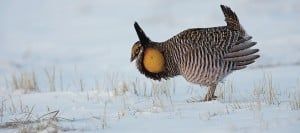extinction
Infographic: Charting the world’s sixth mass extinction
We are entering the first mass extinction since the dinosaurs disappeared 65 million years ago
A look at extinction and human sloppiness
A review of ‘The Sixth Extinction: An Unnatural History’ by Elizabeth Kolbert
The last of the species
The final days of the last members of now-extinct species are as darkly comic as sad
The 10 most recent animal extinctions in Canada
These creatures have either died out entirely or are extirpated from Canada
The butterfly effect
Well, something must be terribly wrong, because butterfly populations are plummeting around the globe.
A ban on the bluefin tuna fishery?
Activists say the lucrative bluefin is on the fast track to extinction
How ‘The Beaver’ lost its name
The story of how the Canadian magazine solved its 90-year-old branding problem
Long-legged, and looking for friends
The giraffe population has quadrupled in just 13 years
Dogs are victims in a scary war
The magnificent Ovcharka
The Global Extinction crisis may have been Overstated
Two researchers say the damage to the world’s tropical forests may not be as bad as first feared. Because population growth is slowing in many countries and people are moving to cities, the pressure to cut down primary rainforest and use marginal land for agriculture is falling, according to Joseph Wright of the Smithsonian Tropical Research Institute in Panama and Helene Muller-Landau of the University of Minnesota.
The first victim of climate change
Scientists think the white possum might be the first ever victim of global warming. The nocturnal animal hasn’t been sighted for three years despite extensive searches. Researchers say the animal could be the first ever extinction brought about rising temperatures. The tree-dwelling white possum is native to the Daintree rainforest in Tropical North Queensland, Australia. It is particularly vulnerable to changing temperatures because they are unable to regulate their body temperature in extreme heat. Professor Stephen Williams of James Cook University in Queensland said the mammal had not been seen in its natural habitat since the area experienced a temperature rise of more than 0.5 of a degree.

